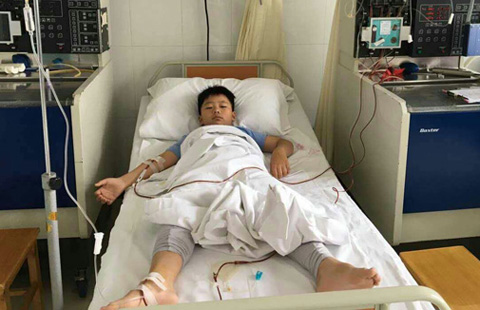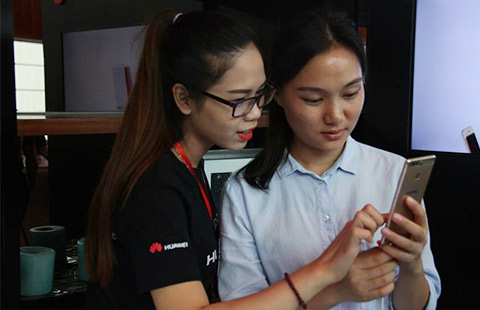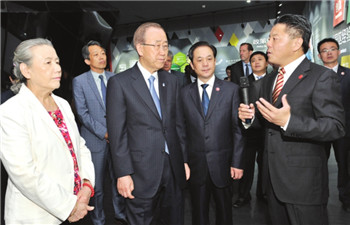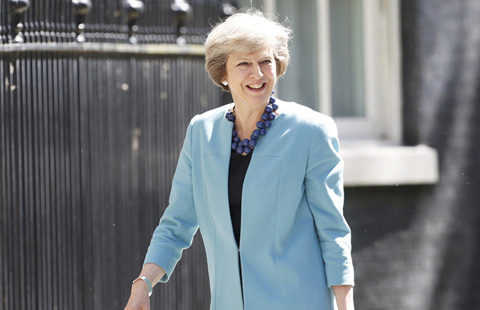China-EU relations: It's time for a pragmatic approach
By Luigi Gambardella ( chinadaily.com.cn ) Updated: 2016-07-14 23:03:13Last year marked the China-EU 40th Anniversary. The two parties celebrated together the achievements made so far in political cooperation, economical development as well as people-to-people dialogue.
China and the EU are marching further on their path toward a comprehensive strategic partnership. The age of 40 is a fresh start in China's culture, indicating that by age of 40, a man will have a better understanding of things previously unknown and a clearer idea of what he wants to do with his life. In another word, it is a milestone for maturity and pragmatism.
The same can be applied here in the case of China-EU relations: it is time for the two sides to untap the hidden potential, to face the unaddressed issues and to realize ambitious dreams with a pragmatic approach hand in hand.
The largest cooperation potential between Europe and China lays in 5G, digital fund, Industry 4.0, e-commerce and startups.
Let us look at theme one by one.
5G and Internet of Things
There are already over 500 million people using 4G. It is the world's largest Internet market with over 700 million Internet users, and it will definitely take a leading role in global 5G and IoT development in next decades. The first to ally with China will grasp the chance to be in the forerunners club, develop its own 5G and IoT capability at fastest speed and ensure large shares in this new market.
Therefore, Europe should be the one: we should maintain privileged relations with Chinese partners and promote joint actions both in the field of research and technology trials. Further "concrete joint initiatives" should be put in place, such as the first "Full 5G Cities", located in Europe and China.
A Digital Fund
China has shown a strong commitment to the Juncker Plan, announcing its will to contribute with up to €10 billion. This sets out a strong signal that China believes increasing investments in Europe will be beneficial and promising. The EU should take advantage of this trust from its partner, use the money wisely and generate tangible results that are in both sides' interests.
Digital is key to power up the economy. China is gearing up its economic growth through digitalization under the nation-wide "Internet +" strategy, while the EU attaches great importance to the "Digital Single Market" strategy to revive its economy and regain competitiveness.
The Juncker Investment Plan, combined with the entry of Chinese capital, provides a unique opportunity for Europe to create a joint digital fund with China, aimed at investing and supporting small and medium-sized EU enterprises operating in ICT or interested to invest and transform traditional businesses into digital ones.
Industry 4.0
The manufacturing industry is about to undergo a new digital revolution thanks to 5G and the introduction of new technologies. This is what we in Europe call Industry 4.0. Think about how new applications are impacting our daily live: artificial intelligence, 3D printers, drones, just to mention a few. It will be an epochal moment, with disruptive consequences to the traditional industries, similarly to what happened with Uber and the transport sector.
China has reacted to the new trend swiftly and is taking fast measures to adapt themselves. The European manufacturing industry must be ready for this challenge as well. Creating an alliance with China, who is interested to increase its investment levels and cooperation opportunities in Europe, can be a precious opportunity for the European industry to accelerate its digital transformation.
E-Commerce
China is the largest market for e-commerce in the world with online retail sales totaling 3.9 trillion RMB ($US590bn) in 2015. Europe should focus on further strengthening its ties with Chinese e-commerce companies, and intensifying EU-China cross-border online trade.
Cross-border e-commerce also means huge potential for European SMEs to reach the ever expanding and increasingly demanding Chinese middle class consumers. For example, in the food and beverage sector, Italian products stand for only 1% of Chinese imports, against 30% represented by the US products.
Implementing Alibaba's e-WTP initiative can be a very good start, but we need to explore more ambitious solutions, and take concrete measures to harmonize cross-border e-commerce rules and boost international transactions.
Startups
Startups can be seen as injections of fresh blood in the veins of an economy, carrying enormous vitality and nutrition needed for a stronger performance. In China, 12,000 new startups are set up every day. The cooperation potential in startups is beyond imagination.
ChinaEU has designed "SilkCamp" to explore such cooperation potential, a joint boot-camp program aimed at promoting cooperation between European and Chinese startups in the Hi-tech and Internet fields by providing all support necessary for European and Chinese startups to navigate and scale up in each other's market.
Louis Gambardella is President of ChinaEU, a non-profit organization based in Brussels which promotes bilateral relations between China and the European Union.
|
|
|
|
|
|
|
|
Features
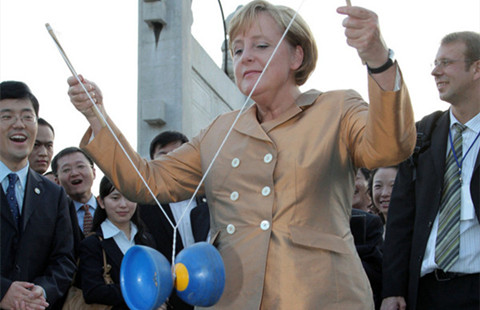 Merkel's lighthearted moments in China
Merkel's lighthearted moments in China 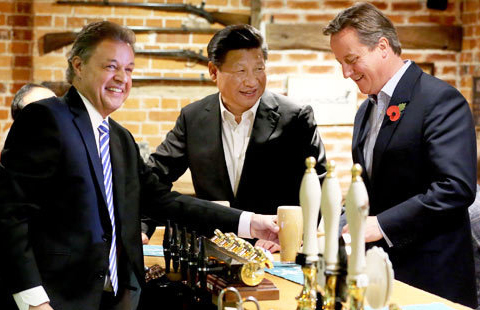 British pub becomes tourist attraction after Xi's visit
British pub becomes tourist attraction after Xi's visit
European Weekly
 We will not give up search, Li vows
We will not give up search, Li vows
International hunt for missing airliner continues after fruitless six-day search



